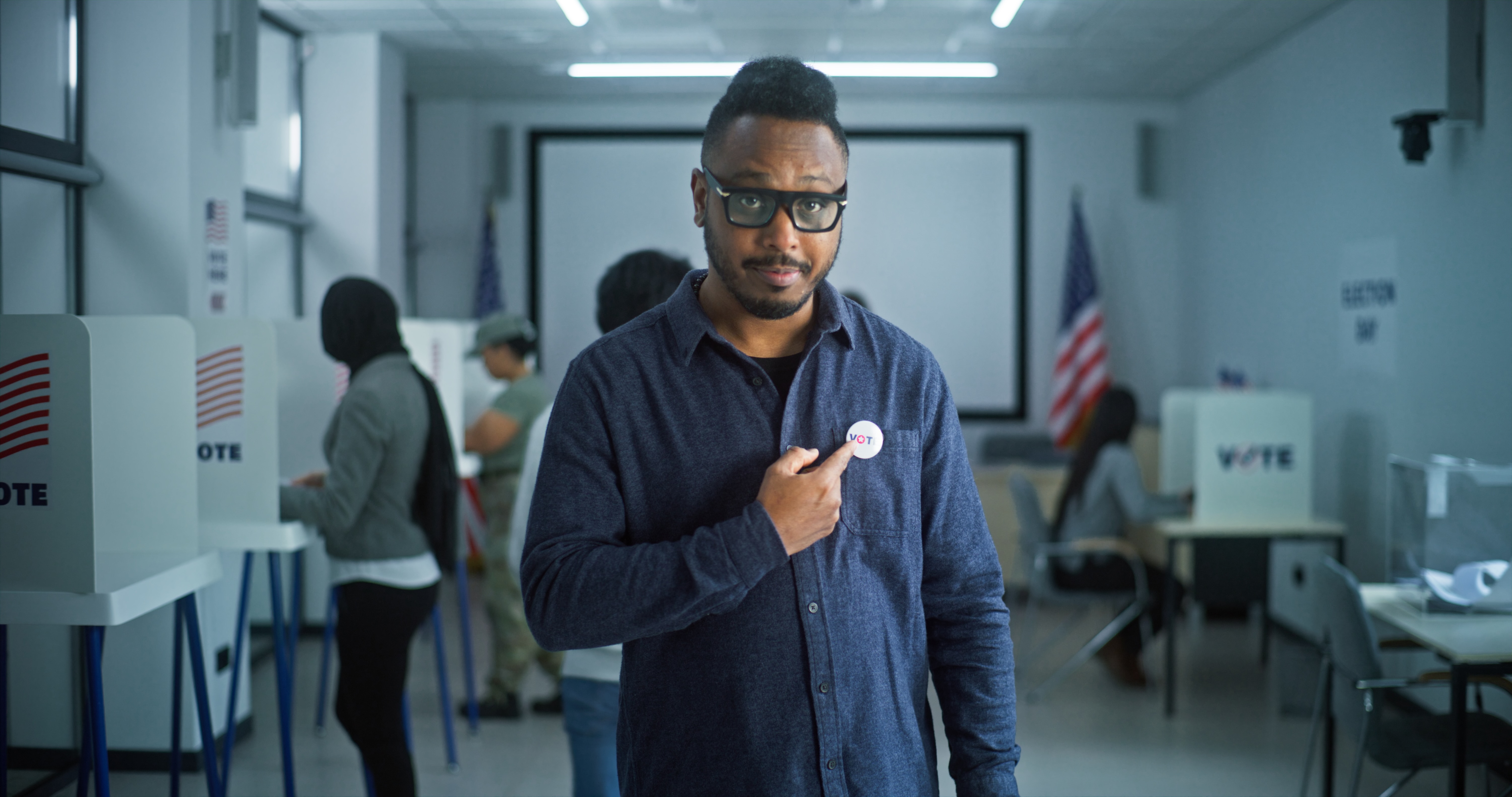American democracy is a complex patchwork of election rules. With more than 10,000 election jurisdictions in the US, voters in different municipalities, counties, and states must navigate a wide range of deadlines and required documentation throughout their voting journeys—and these regulations are constantly changing.
These convoluted requirements start with the first step of civic engagement: registering to vote. Because voter registration processes vary widely across the country, TurboVote is designed to guide future voters through the rules and voting options specific to their location. And it’s clear that current voter registration methods aren’t reaching all people eligible to vote; the proportion of registered voters to a state’s voting-eligible population ranges from 64.7% in Arkansas to 85.1% in the District of Columbia.
As voter registration requirements evolve at the federal, state, and local levels, our team at Democracy Works is closely tracking and responding to these developments, ensuring that our tools provide people with actionable voter registration guidance. By default, TurboVote uses the National Voter Registration Form (NVRF), a federal voter registration application provided by the Election Assistance Commission (EAC), to help people register using a paper form. After we recently learned that citizens in one Georgia county were no longer permitted to register using the NVRF, our team sprang into action. For individuals using a paper form to register to vote in Georgia, we customized TurboVote to prefill Georgia’s voter registration application instead of the NVRF, continuing to facilitate a convenient and accurate voter registration experience while complying with applicable regulations and practices.
Responding to Voter Registration Changes
Recent developments in Georgia were not the first time that Democracy Works has adapted to shifting voter registration requirements. Our Government Affairs team is constantly monitoring for such changes, providing the certainty that voters need to obtain current information specific to their election jurisdiction. After a Wisconsin judge ruled in September 2023 that election officials in the state could no longer accept the NVRF when processing voter registration applications, our team moved quickly to prefill Wisconsin’s voter registration form instead.
Sometimes, changes to voter registration laws and regulations have made it more difficult for civic groups to help people register to vote. To the extent permitted by law, Democracy Works is here to help.
A 2023 Florida law imposed several restrictions on third-party organizations that conduct voter registration drives in the state, particularly those that collect and submit paper applications on behalf of prospective voters. Voter registration groups have reported a chilling effect as a result of the law—choosing in many cases to cease their registration activities altogether or promote online registration rather than risk a substantial fine for noncompliance. Among its provisions, the law prevents third-party organizations from prefilling a person’s voter registration application with their personal information. As a result, TurboVote does not prefill voter registration forms for users in Florida, unlike most other states.
Because TurboVote does not collect or submit registration forms on behalf of voters—but rather, guides users through the registration options available to them—it can fill an important gap left by such laws. As civic engagement groups scale back their in-person registration activities in certain states, voters need accessible digital alternatives. TurboVote will always adhere to applicable federal, state, and local laws while providing voters with trusted, easy-to-understand registration guidance.
Monitoring Future Developments
Voter registration guidelines will continue to change at all levels of government, and we’ll be ready to support voters when they do. A March 2025 executive order, for instance, instructed the EAC to update the NVRF to require documentary proof of citizenship from those registering to vote using the form. In June, a federal judge issued a preliminary injunction blocking this provision, though litigation remains ongoing. The NVRF already instructs applicants to affirm their citizenship status under penalty of perjury, and there is no credible evidence that noncitizens illegally vote in significant numbers. If these citizenship documentation requirements proceed, Democracy Works will be ready to help people adjust when registering to vote, standing by our mission to ensure that all eligible voters can participate with confidence.
Changes to election administration are common across jurisdictions and at times unanticipated, demonstrating the importance of robust development tracking and flexible product design. Because there is no one-size-fits-all approach to US elections, our voting tools can be tailored to different voters’ experiences. Our teams work together to ensure that we’re tuned in to developments on the ground—not just those related to voter registration, but across all aspects of the voting experience—and that we reflect these realities in the tools we deliver. From the moment voters register to when they cast a ballot, we’ll continue doing our part to build a democracy that works for everyone.

.png)

